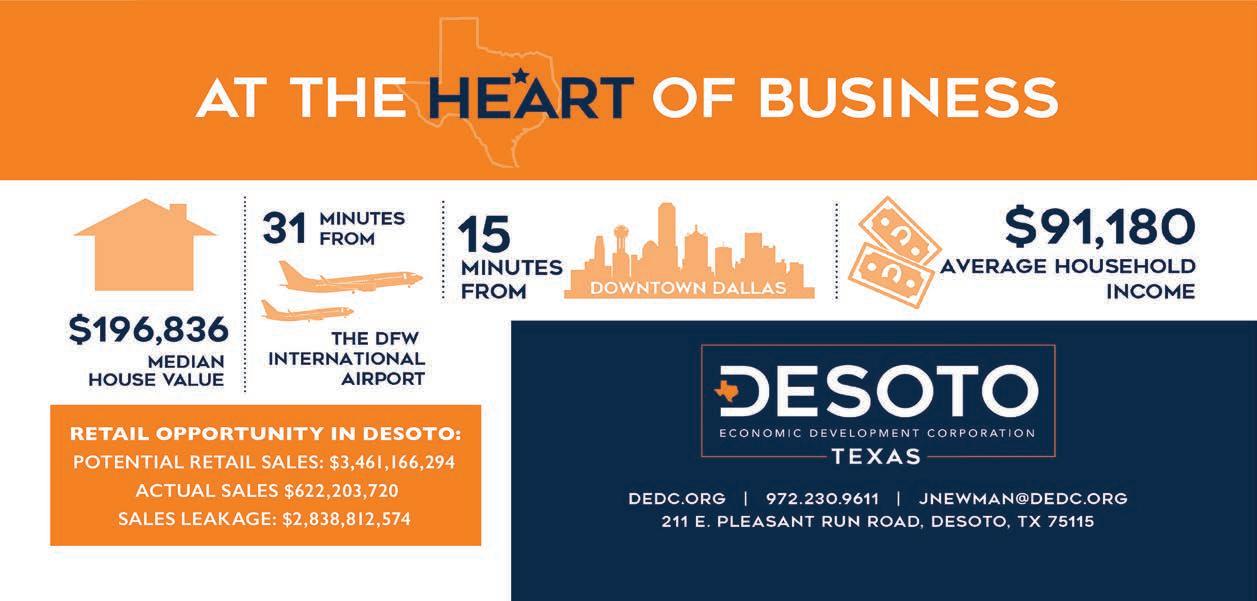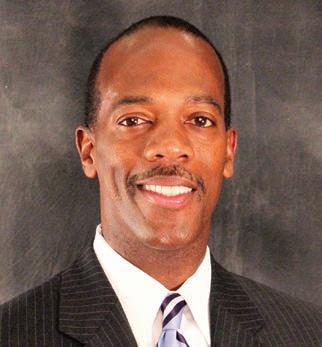
6 minute read
Texas By the Numbers
— Adriana Cruz, Executive Director, Economic Development & Tourism Office of Gov. Greg Abbott
Advertisement
place to do business. As a result, we are a population magnet.
What are you hearing about the office sector in Texas? Will large CBD office buildings in your state return to something close to full occupancy anytime soon?
CRUZ: We believe we will see office buildings in our CBDs fill back up. Commercial real estate contributed $65 billion in GDP last year. Austin and Dallas-Fort Worth are some of the top markets in the country for commercial real estate, along with Houston and San Antonio. We are home to the corporate headquarters of CBRE. HP is building its corporate Headquarters in Spring, Texas. There will be telecommuting for the foreseeable future, but the office is still going to play a significant role in the Texas economy.
What’s been happening on the FDI front since the advent of the pandemic?
CRUZ: Texas is very successful in FDI. Site Selection magazine has ranked us No. 1. Houston and Austin are very attractive. Small communities are also seeing their share of FDI — places like Plano and others. Companies from Brazil and Mexico are investing here. We have not been traveling abroad, so we are doing everything remotely now. That gives us a broader reach. We are able to do these Invest in Texas seminars more often now. We are doing them with Turkey, Peru, Panama, etc. We are getting the Texas word out there.
In Lockstep with Employers
by MARK AREND

In early February 2021, Governor Greg Abbott reappointed Aaron Demerson to the Texas Workforce Commission, subject to Senate confirmation, for a term set to expire February 1, 2027. The Commission is charged with overseeing and providing workforce development services to employers and job seekers in Texas. Aaron Demerson of Austin has served as the Commissioner Representing Employers since August 2019, and previously served as the Director of the Office of Employer Initiatives for the Texas Workforce Commission (TWC). Prior to TWC, he served as a Senior Advisor to Governor Rick Perry and was the Executive Director of the Economic Development and Tourism Division. Following are highlights of a mid-March interview with Site Selection Editor in Chief Mark Arend.
Congratulations on being reappointed as Commissioner Representing Employers at the Texas Workforce Commission. Are there new or different priorities you anticipate during this new term?
DEMERSON: None of us knew we would be hit by the pandemic in 2020, so we have some opportunities to do some things differently. We’ve always listened to the employers, and now comes the time to take what we’ve learned from this pandemic and put it into action. And we’ll do some things differently as we continue to grow and evolve here in Texas, with companies like Tesla, Oracle and HewlettPackard announcing plans to relocate here, and smaller ones taking place, too, statewide. We’re champing at the bit to see what’s next for Texas without the pandemic. We’ve been able to make a lot of things work, even virtually, so I can only image what will happen once we’re unleashed in other ways.
As Employers’ Representative, what expectations or resource requests do employers typically bring before the Commission?
DEMERSON: We typically advocate for employers on the unemployment insurance side of things. I’m the Commissioner that represents the employers and two other commissioners represent the employees. And our Chair, Bryan Daniel, represents the public. Once a week we discuss unemployment insurance cases. Texas continues to be a very business-friendly state, and we’re quite proud of that. The other side of what we do is policy from the employers’ standpoint — making sure the tax rates are favorable, that we’re doing the best we can to keep rates as low as we can so that companies can operate their businesses successfully. We’re doing what we can to make sure that whatever rates are set are done looking at every angle to make sure we’re able to make a difference.
We also advocate on behalf of the employer in terms of their needs and desires, such as liability protections, and making sure we continue to keep our training programs in place and don’t deplete our training funds for skilling and upskilling employees. Industry association groups want to see Texas grow, and I represent that on the employers’ side from a policy standpoint, making sure we have the proper programs in place so they can run their businesses and make a difference [see sidebar for a recent example]. Early in the pandemic, we spoke with major industry groups about their main concerns, and one was liability protection, which the governor made a priority. That’s an example of how we’re in lockstep with what the employers are looking for.
Managing this role over such a vast geography and diverse economy as Texas must be a challenge. How are communications pipelines structured so you are aware of employers’ workforce needs and concerns?
DEMERSON: On the workforce side, we have 28 local workforce solutions offices throughout Texas. Those people are the boots on the ground for anything workforce related. That makes our job a lot easier. Communication in Texas is made easier by the relationships we have with them throughout the state. There’s not a community in Texas that feels that they aren’t tied into us here in Austin, and I’m tied in statewide. That’s the secret in Texas behind some of our competitiveness — the fact that we communicate in an effective way anywhere in the state. We have that issue nailed down. And we were able to do that before the Zoom calls.
New Funding Pays for Testing, Helps Workers Improve Marketability
On March 8th, the Texas Workforce Commission (TWC) announced aid to Texans seeking to obtain their Texas Certificate of High School Equivalency (or TXCHSE), improve their marketability in the workforce, and increase their earning potential. The high school equivalency subsidy program provides free subsidies for Texans at least 21 years of age to take a GED or HiSET exam. While existing adult education and literacy (AEL) programs support adult learners to prepare to take a high school equivalency test, they do not cover the costs of taking a test. This program does that.
“Administrative costs should not be barriers for students who have a willingness to succeed and commit to continuing their education,” said TWC Chairman Bryan Daniel. “These new funds will help students cross the finish line and improve their opportunities in the workforce.”
Adult education and literacy (AEL) programs funded by TWC provide English language, math, reading, and writing instruction to help students acquire the skills needed to succeed in the workforce, earn a high school equivalency, or enter college or career training. Recent analysis shows that a significant number of unemployed Texans impacted by the pandemic do not have a high school diploma or its equivalent.
“Workers in adult ed programs often joined the workforce early and missed education opportunities,” said TWC Commissioner Representing Labor Julian Alvarez. “These are hard workers who have a gap in their education that can be limiting. These programs help them fill that gap and position them to reach their full potential.”











